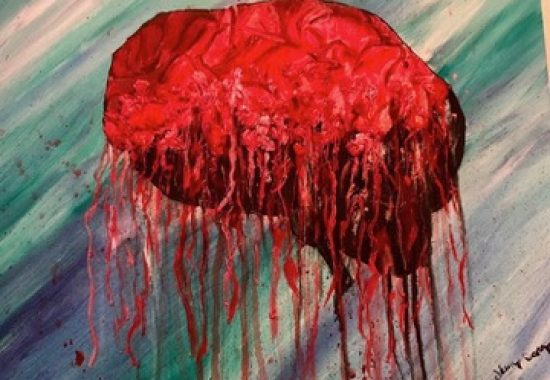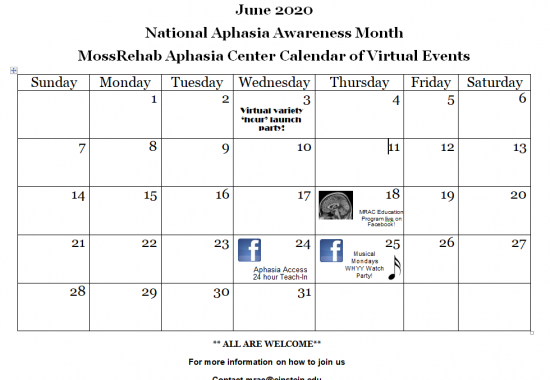Happy National Aphasia Awareness Month to you all! In honor of National Aphasia Awareness Month, and in recognition of the upcoming, All About MossRehab Through the Arts, we are highlighting people with aphasia who are making a contribution to their communities through the arts.
Continue ReadingTag: National Aphasia Awareness Month
Aphasia and the Arts: Poetry
Happy National Aphasia Awareness Month to you all! In honor of National Aphasia Awareness Month, and in recognition of the upcoming, All About MossRehab Through the Arts, we are highlighting people with aphasia who are making a contribution to their communities through the arts.
Continue ReadingMusic and Aphasia
As we wind down our activities for National Aphasia Awareness Month, we’re so pleased to feature this guest post from our own, Roberta Brooks, CCC-SLP!
Continue ReadingJune is National Aphasia Awareness Month!
At the MossRehab Aphasia Center, every month is Aphasia Awareness Month, but we always plan special events for June. Please join us and help spread the word about aphasia!
Continue Reading

